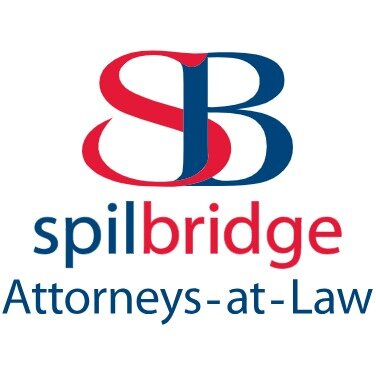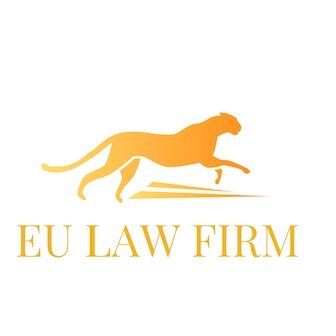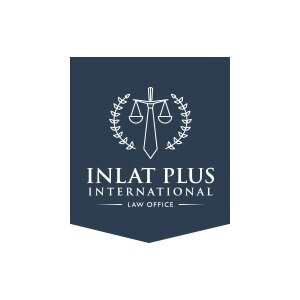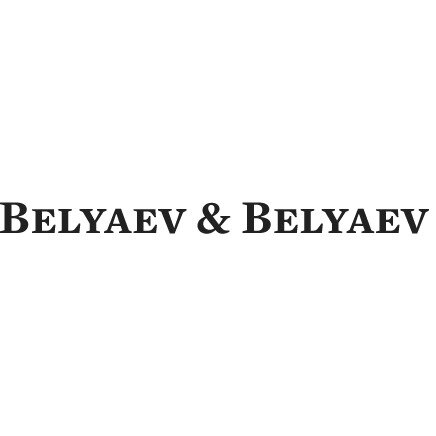Best Renewable & Alternative Energy Lawyers in Latvia
Share your needs with us, get contacted by law firms.
Free. Takes 2 min.
Or refine your search by selecting a city:
List of the best lawyers in Latvia
About Renewable & Alternative Energy Law in Latvia
Renewable and alternative energy law in Latvia concerns the regulation, promotion, and use of energy produced from renewable sources such as solar, wind, hydro, biomass, and geothermal energy. Latvia has set ambitious national targets to increase its share of renewables in the energy mix, in line with European Union directives and climate goals. Legal frameworks support renewable energy development, incentivize investments, and set technical and environmental standards for energy projects. The sector is governed by various laws, rules, and regulatory bodies that oversee project approvals, grid connections, subsidies, and the environmental impact of energy production and consumption.
Why You May Need a Lawyer
Navigating the renewable and alternative energy sector in Latvia often involves complex legal matters. You may require a lawyer in situations such as:
- Obtaining permits for constructing renewable energy installations
- Applying for state subsidies or support schemes
- Negotiating land use or grid access agreements
- Ensuring compliance with environmental regulations and standards
- Resolving disputes with authorities, partners, or third parties
- Drafting and reviewing contracts for equipment supply, installation, or energy sale
- Understanding and navigating tax incentives and financing options
- Responding to inspections and enforcement actions
Legal professionals can help individuals, investors, developers, and companies safeguard their interests and ensure their projects meet all Latvian legal requirements.
Local Laws Overview
Latvia’s renewable and alternative energy sector is regulated primarily by the Energy Law, the Electricity Market Law and several regulations issued by the Cabinet of Ministers. Key aspects of local laws in this field include:
- Licensing and Permits: Certain renewable energy projects require specific permits, such as construction, operation, and environmental impact assessments. The application procedures are defined by law.
- Support Mechanisms: Latvia has feed-in tariffs, public support schemes, and project tenders for renewable energy. Legislative changes may periodically adjust these mechanisms.
- Grid Access: Renewable energy producers have regulated rights and obligations concerning access to electricity grids. Latvia guarantees non-discriminatory access subject to technical and safety requirements.
- Sustainability Standards: Laws set requirements for the sustainability of biomass and other energy sources, in accordance with EU legislation.
- Environmental Protection: Projects must comply with both local and EU environmental impact assessment regulations.
- Taxation and Incentives: There are incentives for renewable energy investments, such as reduced VAT rates or certain tax exemptions, governed by tax legislation.
- Dispute Resolution: Legal frameworks provide means for addressing disputes, either through administrative processes or court action.
Frequently Asked Questions
What are the main renewable energy sources in Latvia?
Latvia’s main renewable energy sources are hydro, wind, solar, and biomass. Hydroelectric power is currently the dominant source, but solar and wind are growing rapidly due to new investments and technological improvements.
Do I need a permit to build a solar installation at my home?
Small-scale solar panels for personal use usually do not require complicated permits but must comply with technical regulations and construction norms. Larger installations might require additional approvals from municipal authorities.
Are there government incentives for switching to renewable energy?
Yes, Latvia offers several incentives, including financial support for renewable energy projects, participation in public tenders, net metering for small producers, and other subsidies based on specific programs and eligibility criteria.
How can I connect my renewable energy installation to the national grid?
To connect to the electricity grid, you must apply to the grid operator with all required documentation and comply with technical requirements. The process and applicable fees depend on the size and type of your installation.
What environmental regulations apply to renewable energy projects?
Projects must follow national and EU environmental laws, including environmental impact assessments for larger installations, waste management rules, and protection of habitats and species.
Can foreign investors participate in Latvian renewable energy projects?
Yes, foreign investors are welcome in Latvia’s energy sector and may own and operate renewable energy installations, subject to the same licensing and regulatory framework as local entities.
What legal risks should I consider before starting a renewable energy project in Latvia?
You should consider regulatory compliance, project permitting, grid access guarantees, potential environmental liabilities, contract enforcement, and possible changes in support mechanisms or legislation.
How are disputes resolved in the renewable energy sector?
Most disputes are first addressed through administrative procedures. If unresolved, parties can pursue civil litigation in Latvian courts. Arbitration is another possible route, especially for contractual disputes.
Are there rules regarding the sale of surplus electricity from renewable sources?
Yes, surplus electricity can generally be sold to the grid or other market participants, subject to grid operator agreements and the applicable market regulations.
Who regulates the renewable energy sector in Latvia?
The Public Utilities Commission (PUC) is the main regulator for electricity markets and grid access, while the Ministry of Economics oversees energy policy, planning, and support schemes. Environmental oversight is provided by the State Environmental Service.
Additional Resources
If you need more information or wish to contact relevant authorities, consider the following resources:
- Ministry of Economics of the Republic of Latvia: Sets national energy policy and oversees renewable energy programs.
- Public Utilities Commission (PUC): Regulates electricity markets and grid operators.
- State Environmental Service: Monitors environmental compliance and issues environmental permits.
- Latvian Investment and Development Agency: Offers guidance on starting and financing renewable energy projects in Latvia.
- Latvian Association of Solar Energy, Wind Energy Association: Industry groups offering expertise and networking for sector participants.
Next Steps
If you need legal assistance in the renewable and alternative energy field in Latvia, here are your next steps:
- Gather relevant project documentation, such as technical plans, site information, and intended sources of financing.
- Research law firms or legal consultants with proven experience in Latvian energy law or the renewable energy sector.
- Schedule a consultation to discuss your project or legal concern, outlining your objectives and any deadlines.
- Prepare a list of questions related to licensing, compliance, contracts, or dispute resolution for the legal expert.
- Follow your lawyer’s guidance regarding applications, negotiations, contracts, or regulatory processes.
- Stay updated on legislative changes and sector news through official bulletins and industry associations.
Seeking early legal advice ensures your project starts on the right footing, remains compliant, and achieves the best chance of success in Latvia’s evolving renewable energy landscape.
Lawzana helps you find the best lawyers and law firms in Latvia through a curated and pre-screened list of qualified legal professionals. Our platform offers rankings and detailed profiles of attorneys and law firms, allowing you to compare based on practice areas, including Renewable & Alternative Energy, experience, and client feedback.
Each profile includes a description of the firm's areas of practice, client reviews, team members and partners, year of establishment, spoken languages, office locations, contact information, social media presence, and any published articles or resources. Most firms on our platform speak English and are experienced in both local and international legal matters.
Get a quote from top-rated law firms in Latvia — quickly, securely, and without unnecessary hassle.
Disclaimer:
The information provided on this page is for general informational purposes only and does not constitute legal advice. While we strive to ensure the accuracy and relevance of the content, legal information may change over time, and interpretations of the law can vary. You should always consult with a qualified legal professional for advice specific to your situation.
We disclaim all liability for actions taken or not taken based on the content of this page. If you believe any information is incorrect or outdated, please contact us, and we will review and update it where appropriate.
Browse renewable & alternative energy law firms by city in Latvia
Refine your search by selecting a city.
















